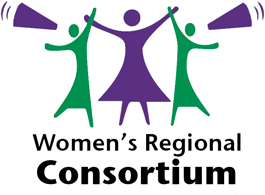Speaking at a rally held here at the Guildhall Square in Derry on Saturday regarding cutting the Universal Credit Uplift was an eye-opening experience, hearing first hand these women’s stories about how detrimental this going to be to their mental health and lives was stomach churning.
In September 2020 the women’s regional consortium contributed to call for evidence request into the impact on poverty of maintaining the £20 Uplift in universal credit. This research highlighted the difficulties women face with universal credit struggling to make ends meet living on the benefit. Taking away the £20 uplift is going to have a massive effect on women who are already struggling to put food on the table. The fact that food banks are more needed now than ever before is a clear indicator that women cannot afford to lose this vital help.
I know £20 doesn’t seem like a lot to some people but this adds up to £80 a month which adds up to £960 a year, this is a significant amount of money to those on the lowest incomes. It can make a real difference to individuals and families allowing them to feed their families, heat their homes, buy new school shoes or winter coats.
The government plans to remove this vital support for those on the lowest incomes could not come at a worse time. We are still very much in the mist of the pandemic, people are still struggling financially this important lifeline cannot be removed when people need it most. Some people are still working from home, children are still being sent home from school to isolate, as we are still conforming to government guidelines regarding the pandemic, they should not be removing the uplift from the people that need it most.
The mental health impacts of struggling to live on a low income and in poverty are also significant. T The stress and anxiety faced by many people on low incomes, particularly women who are often responsible for household budgets, is enormous. Women often bear the brunt of poverty in the home acting as the shock absorbers of poverty going without, food, clothes, warmth in order to meet the needs of other family members when money is tight. This is an issue which features time and time again in research with women on the impact of poverty, austerity, welfare reform and universal credit.


